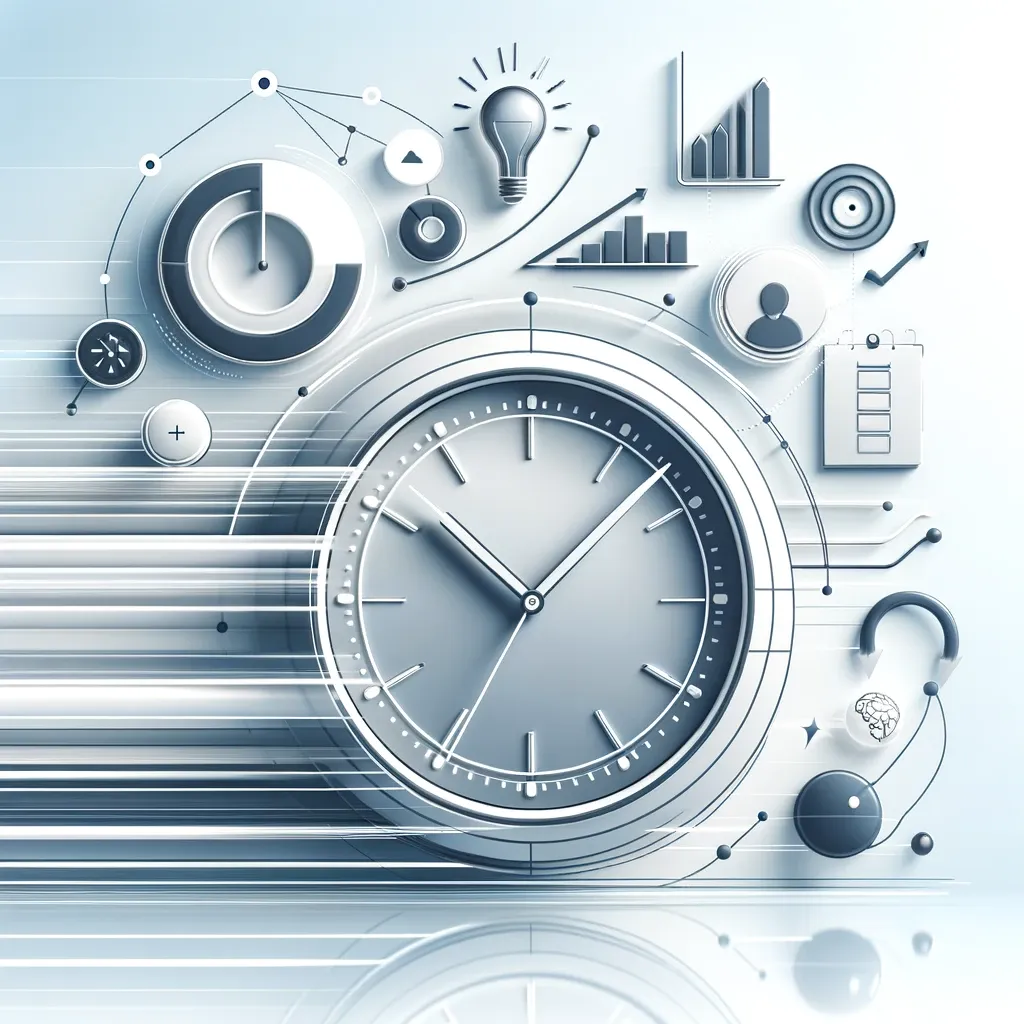
Productivity
“The key is not to prioritize what's on your schedule, but to schedule your priorities.” - Stephen Covey
This is a 4-part series that was originally posted on LinkedIn. Here I explore productivity at work from different angles.
-Igor Ristevski
Your Internal Clock

Welcome to 2024! For this week, I'd like to zoom in on productivity but not in the way you'd expect. Let's discuss how productivity closely relates to your mental and physical well-being.
The importance of sleep cannot be understated and there has been a lot of talk about maintaining your circadian rhythm. But what is that? Think of it as your internal clock regulating your energy levels and biological functions based on time patterns.
My health professional is adamant about uninterrupted sleep between 10 pm and 2 am. She maintains that this is crucial for getting quality sleep. Of course, medical opinions will vary, so seek a medical professional you trust (i.e. not me).
Some of you may think that doing this is good but you may object because you may work shifts, work long hours, or have too many night-time commitments that prevent you from getting a consistent 8 hours of quality sleep.
Here are 4 things you can do to improve your quality of sleep:
→increase your exposure to daylight in the morning and reduce screen time in the evening
→take short 20 to 30-minute naps but make sure they aren't too late in the evening or they may disrupt your sleep further
→limit fluid intake in the evening to reduce the chance that you will wake up
→make a habit of preparing yourself for bed by doing relaxing activities such as taking a bath or reading a book
If you are successful and improve your sleep, you will notice that your alertness, energy levels, and motivation will go up and those factors are all tied to increased productivity.
P.S. The gentleman above clearly has his circadian rhythm out of sorts.
Get Moving

Can exercising make you more productive at work? Yes - here are three ways:
→It will improve your cognitive functions because exercise enhances blood flow to your brain.
→It can also increase your motivation and overall mood because regular exercise releases endorphins.
→It also helps you manage your work stress by regulating your cortisol levels.
When you improve your logical processes and motivation and regulate your negative emotions, you become more productive.
However, getting into an exercise habit can be difficult.
Just start somewhere even if you can't commit to a gym membership, fitness class, or workout routine at home.
Start with walking 30 minutes a day and work your way up to an hour or more.
Aim anywhere between 7,000 to 13,000 uninterrupted steps.
Don't get discouraged because it isn't a competition.
Start doing something physical and see if you notice an improvement in your productivity.
P.S. In the picture above, the gentleman is being trained by the lady on the right. It's never too late to start.
Get Comfortable

Want to improve your productivity in 2024? Start by getting rid of that uncomfortable chair you've been sitting in.
Swap it out for a more ergonomically friendly one. But don't stop there, rearrange your workstation so it is more ergonomic.
And here's the good news, you don't need a consultant to do this for you. YouTube has a ton of resources available if you search for "ergonomic office hacks". You'll learn how best to stage your hardware and use proper posture among other useful tips.
So, why do ergonomics matter? Well, because of RSI or repetitive strain injuries. Outside of slips and falls it's the most common injury among office workers. And when you are injured you aren't being your most productive.
But even if you weren't injured, you may just be uncomfortable and that could result in some productivity dips as well.
In 2024, you deserve to be comfortable while working, so I challenge you to be more proactive and see if you notice a difference in your productivity once you've made the changes to your office setup.
P.S. The gentleman in the picture above is taking extra care to ensure that his keyboard is in the most ergonomic position. You could do the same!
Get Help When Needed

If you take care of your body, you will become more productive at work but your mental health is just as important.
Both work and life come with their unique challenges and for most people, it is difficult to compartmentalize the stresses and traumas that come with both.
Having a tough time at home? Your work colleagues will notice.
Having a tough time at work? Your partner will notice.
Whatever situation you find yourself in, you will have to deal with mental health issues in some way.
Depending on the severity of it, the solution could be as simple as sleeping and exercising more.
But often it is not.
When we are discussing serious traumas due to work or home life, you have to choose for yourself if you want a change and seek professional help from a certified medical professional.
Making that choice is difficult but think of what you will lose if you do nothing.
This goes beyond work performance but that is undoubtably affected.
It goes much deeper - this is about your quality of life.
I hope that anyone who is reading this and feels that this describes them takes the first step.
Google "Mental health support [YOUR CITY, YOUR COUNTRY]" and start from there.
P.S. What do you think the gentleman in the picture above is thinking? What could be going on in his life?
What stuck out for you from this series? What will you take with you? I'd love to hear your insights, so please feel free to connect with me on LinkedIn and send me a DM by clicking here.
-Igor Ristevski
